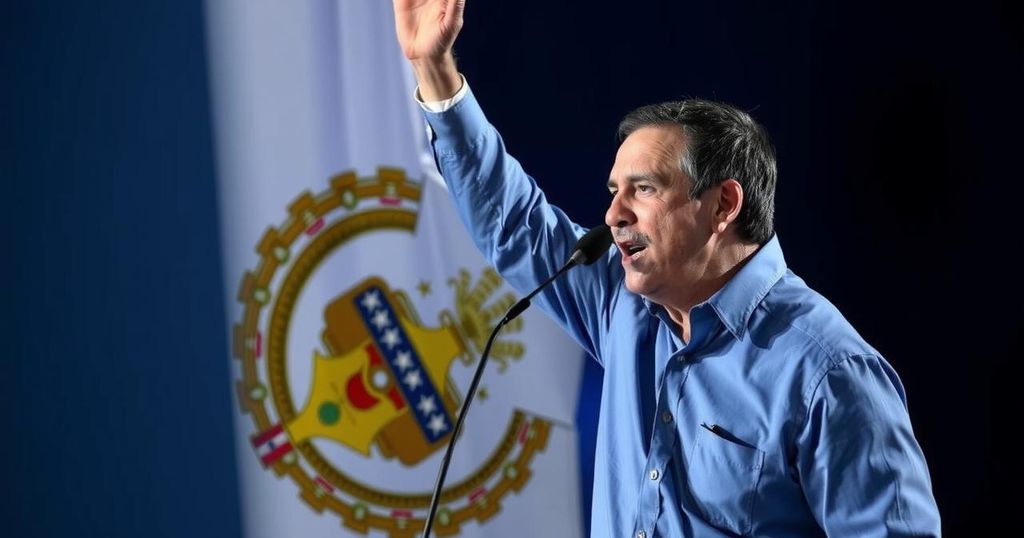Uruguay’s Conservative Government Concedes to Left-Wing Challenger Orsi
Uruguay’s governing conservative coalition has conceded the presidential run-off to left-wing challenger Yamandu Orsi. Alvaro Delgado acknowledged Orsi’s victory after a closely contested election, marking the end of a conservative government elected in 2020. The transition reflects voter discontent globally with incumbents amid economic challenges, with Orsi promising moderate reforms while retaining elements of past governance.
Uruguay’s conservative coalition, which has governed the nation for the past five years, acknowledged its defeat in the presidential run-off to left-wing contender Yamandu Orsi. Alvaro Delgado, the centre-right candidate, addressed his supporters, stating, “with sadness, but without guilt, we can congratulate the winner.” With over 57% of votes counted, Orsi of the Broad Front is projected to lead the country, ending the brief tenure of the right-leaning government that took office in 2020 under Luis Lacalle Pou.
Mr. Lacalle Pou confirmed the transition, congratulating Orsi and emphasizing his commitment to facilitate the changeover. Voter turnout was robust, documented at 89.4%. Quick counting by independent polling organizations indicated Orsi secured approximately 49% of the vote, while Delgado garnered roughly 46%. This election mirrors a global trend of discontent with incumbent regimes as citizens react to economic challenges following the pandemic.
Orsi, a moderate leader, has vowed to maintain continuity with some of the policies established during the Broad Front’s previous 15-year governance, emphasizing a balance of market-driven initiatives and social welfare programs. His platform includes proposals for tax incentives aimed at attracting investment and social security reforms targeting a reduction in the retirement age. Despite the call for change, Orsi’s agenda appears aligned with prudent fiscal measures rather than widespread reforms sought by trade unions.
Yeny Varone, a voter present at the polls, expressed confidence in Orsi’s leadership, saying, “He’s my candidate, not only for my sake but also for my children’s. In the future, they’ll have better working conditions, health, and salaries.”
Mr. Orsi’s victory represents a pivotal moment in Uruguay’s political landscape, heralding a shift towards a more left-leaning administration while retaining core policies of stability and inclusivity addressed by his predecessors.
The recent political transition in Uruguay marks a significant turning point for the nation as the conservative coalition, in power for the past five years, gives way to a left-wing government. This change follows the election of Luis Lacalle Pou in 2020, which had disrupted a lengthy period of left-leaning governance by the Broad Front spanning 15 years. The political shift reflects broader global trends in which voters express dissatisfaction with incumbent administrations amid economic recovery challenges post-pandemic. Uruguay’s political history features progressive reforms achieved during the Broad Front’s governance, including the legalization of abortion, same-sex marriage, and regulated marijuana sales.
The concession by Uruguay’s government signifies a shift in political power to the left, with Yamandu Orsi poised to lead the country following a closely contested election. The voter turnout and the close results highlight an engaged electorate responding to economic concerns. While Orsi’s administration promises continuity with core policies, his moderate stance aims to address both economic growth and social welfare. This transition not only represents a distinct change in leadership but also reflects wider global sentiments towards political change among voters dissatisfied with their current leadership.
Original Source: www.shropshirestar.com




Post Comment